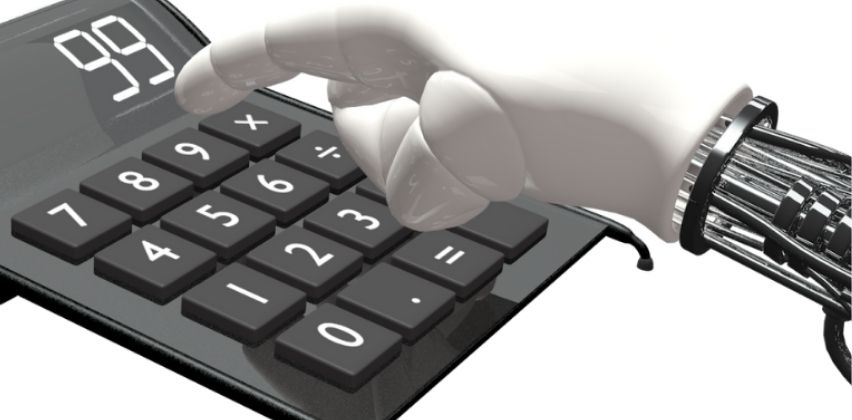
How RPA in Financial Services is Transforming the Industry
The financial industry depends on accounting accuracy. A single error and the company loses thousands of dollars. There’s no scope for inefficiencies either. Missing the last date for tax filing causes serious trouble. Matching the financial statements takes so much time – accounting teams forcefully make adjustments here and there.
Robotic Process Automation in accounting aims to solve these challenges. Accounting process automation focuses on quick completion of data entry tasks and balancing of financial statements.
Most inaccurate results come from complicated accounting systems. However, audit automation tools don’t care about that – if they get a trigger to operate. Whether it takes 15 steps to record an entry or 1 – the RPA bots would complete it without getting confused. That’s a big advantage for an industry solely dependent on the accounting staff for every little monetary work.
Read more: 11 RPA Use Cases in Different Industries you Ought to Know
This article focuses on answering three main questions –
- What is RPA in accounting and finance?
- What are the benefits of RPA in accounting?
- What are the RPA use cases in accounting?
The following is a detailed guide to understand the functioning of RPA in accounting and finance. We will address what enterprises want to know the most – how can Robotic Process Automation in management accounting help their enterprise? Continue reading to learn more.
What is RPA in Accounting and Finance?
Even in 2021, the finance department has hundreds of menial tasks. From data entry to centralized systems to achieving transactional accuracy – RPA solutions play a broad role in accounting, auditing, and financial management.
The application of RPA in accounting is diverse. RPA automates mundane and repetitive tasks that eat up valuable employee time. By deploying RPA automation, enterprises can easily remove the bottlenecks of manual accounting and finances.
When you ask, “So, What is RPA in accounting?” It is more about understanding how it works. While the technology doesn’t directly manipulate data according to its will, like Machine Learning, RPA enables data transfer, response triggers, and transaction execution.
Mostly, RPA implementation is about automating predictable, routine activities. It is helpful in budgeting, forecast planning, reporting, and revenue management. Activities that require data from multiple sources need RPA to automate the process and deliver quick results.
What are the Benefits of RPA in Accounting?
The advantages of RPA in accounting exceed their reputation. The amount of flexibility, productivity, and efficiency it brings to the workforce is tremendous.
RPA solutions are also useful in fostering an environment of ownership and innovation. Enterprises that delegate mundane tasks like data entry and passing of records to RPA bots have highly creative employees. People who are not doing repetitive tasks that are tiring are more focused and take ownership of their work.
Let’s have a look at the 3 most significant benefits of RPA in accounting and financial services –
- Higher productivity
RPA in accounting firms is highly useful when they have a lot of clients. Extracting information from various invoices, passing it to multiple systems, and processing it manually is tiring. RPA solutions increase productivity by delivering more outcomes in less time. Bots interact with different systems to gather information and record it where it is needed the most. It can increase productivity by 50%. - Better accuracy
Making an error in financial management is just not acceptable. Robotic Process Automation (RPA) in accounting performs specific functions based on triggers. While humans get tired and make mistakes, RPA bots work 24×7 without making any errors. They are given pre-determined triggers that respond to outcomes that the system needs. RPA increases the accuracy of results by providing only specific results. - Increased efficiency
One of the most significant benefits of RPA in accounting is its efficiency. A financial task, say tax data extraction, may take hours to complete by an employee. RPA bots can do that task in minutes. It will go through the system, search for the required parameters, and extract thousands of data values within seconds. Companies can save a lot of time and employ human resources on more critical tasks.
Apart from these, RPA also leads to better employee retention. When mundane tasks are delegated, employees work on creative tasks that involve creative thinking. It helps them grow and increase your employee retention rate.
Checkout Pros and Cons of RPA Technology for Digital Enterprises
Let’s move on to the RPA examples in accounting and their real-world application in different financial processes.
What are the RPA Use Cases in Accounting?
RPA use cases in finance and accounting are multiplying as the industry progresses more towards technology. Today, RPA is set to digitize financial operations and bring in new efficiencies to various applications.
Here are a few use cases and examples of RPA in accounting –
- Accounts Receivables & Payables
- RPA is useful in generating regular invoices to customers so that the receivables are always in check. It can automatically remind them to make payments and take follow-ups within set intervals of time.
- Similarly, the finance department can set RPA bots to transfer vendor invoices directly to the approver’s inbox. Robotic Process Automation in public accounting automates payment to the vendor with integration to the financial system and bank accounts. They can also match the purchase history with the invoice to ensure accuracy.
- Invoice Processing
- As mildly discussed above, RPA services play a crucial role in invoice processing. Creating invoices each month for vendors and customers is a time-consuming process. RPA solution simplifies this and leads to better payment management.
- Robotic Process Automation in management accounting enables bots to gather data from various sources – emails, CRM, and more. RPA automation helps collect all the invoice data, prepare the invoice, and send it to the required stakeholder.
- Account Reconciliation
- Closing financial accounts is a strenuous activity. It requires a lot of careful attention, detailing, data extraction, and more. RPA in accounting takes care of the process after you match the data against the accounts.
- RPA bots find the discrepancies in the system based on the specific parameters you have set. It will help to reconcile the accounts and manage the transactions without any harm to the relationship with the clients.
- Report Generation
- Generating financial reports is a challenge. Once the statements are done – how do you make reports for accounts in the minimal time possible? By deploying RPA in financial services and report generation.
- RPA can record daily transactions, expenses, profit & loss, and revenue, providing a report whenever you need it. Since there are pre-defined triggers, there will be no inaccuracies in the report.
- Financial Management
- RPA, in combination with Artificial Intelligence, delivers smart outcomes for financial management. It provides personalized investment advice through Robo Advisors. Algotrading also becomes possible through RPA bots.
- RPA can track real-time changes in the market data and prepare a report to help you make better financial decisions. It can track investments across your portfolio and recommend which stocks you should invest in.
Conclusion
The advantages of RPA in accounting and finance will certainly go beyond what we know today. With the increasing use of modern tech in the financial industry, RPA is becoming a significant driver of digital transformation.
BoTree Technologies offers complete RPA solutions in accounting and finance. We build advanced bots that automate your financial transactions and deliver accuracy. Contact us today for more information.




